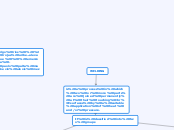arabera kevin rios 6 years ago
406
WELDING
Welding is a method of permanently joining two or more parts at their contacting surfaces through the application of heat and/or pressure. This process is divided into two main categories:

arabera kevin rios 6 years ago
406

Honelako gehiago
3. Ultrasonic welding (USW) for metals: This process utilizes transverse oscillation of one part against the other to develop sufficient frictional heat for fusion to occur.
2. Friction Welding (FRW) In friction welding (solid state welding process) coalescence is produced by utilizing the heat obtained from the mechanically induced rotating motion between the rubbing surfaces. When the temperature at the interface of the two parts is sufficiently high, the rotation is stopped and increased axial force is applied. This fuses the two parts together
1. Diffusion bonding (DB): Parts are pressed together at an elevated temperature below the melting point for a period of time.
Electron-Beam Welding (EBW) Electron beam welding is defined as a fusion welding process wherein coalescence is produced by the heat obtained from a concentrated beam of high velocity electron. When high velocity electrons strike the workpiece, kinetic energy is transformed into thermal energy causing localized heating and melting of the weld metal.
Arc welding and similar processes
It consists of combination of different welding processes wherein coalescence is produced by heating with an electric arc, (mostly without the applicatiodn of pressure)andde with or without the use of filler metals depending upon the base plate thickness.
Plasma Arc Welding (PAW) This process is similar to TIG. A non-consumable electrode is used in this process. Arc plasma is a temporary state of gas. The gas gets ionized after the passage of electric current and becomes a conductor of electricity.
Gas-Tungsten Arc Welding (GTAW) This process is also known as tungsten–inert gas (TIG) welding. This is similar to the GasMetal Arc Welding process. Difference being the electrode is non consumable and does not provide filler metal in this case.
Gas-Metal Arc Welding (GMAW) In this process an inert gas such as argon, helium, carbon dioxide or a mixture of them are used to prevent atmospheric contamination of the weld. The shielding gas is allowed to flow through the weld gun.
Flux-Cored Arc Welding (FCAW) This process is similar to the shielded-arc stick welding process with the main difference being the flux is inside the welding rod
Submerged Arc Welding (SAW) This is another type of arc welding process, in which coalescence is produced by heating the workpiece with an electric arc setup between the bare electrode and the work piece.
Shielded-Metal Arc (SMAW) or Stick Welding This is an arc welding process wherein coalescence is produced by heating the workpiece with an electric arc setup between a flux-coated electrode and the workpiece
Electron- beam welding (EBW). Electron beam welding is defined as a fusion welding process wherein coales.
Resistance welding. Resistance welding is a group of welding process in which coalescence is produced by the heat obtained from the resistance of the work to the flow of electric current in a circuit of which the work is a part and by the appication of pressure.
Oxyfuel Gas Welding (OFW)this process is also known as oxy-acetylene welding. heat is supplied by the combustion of acetylene in a stream of oxygen.Both gases are supplied to the torch through flexible hoses .Heat from this torch is lower and far less concetrated than than from an electric arc.